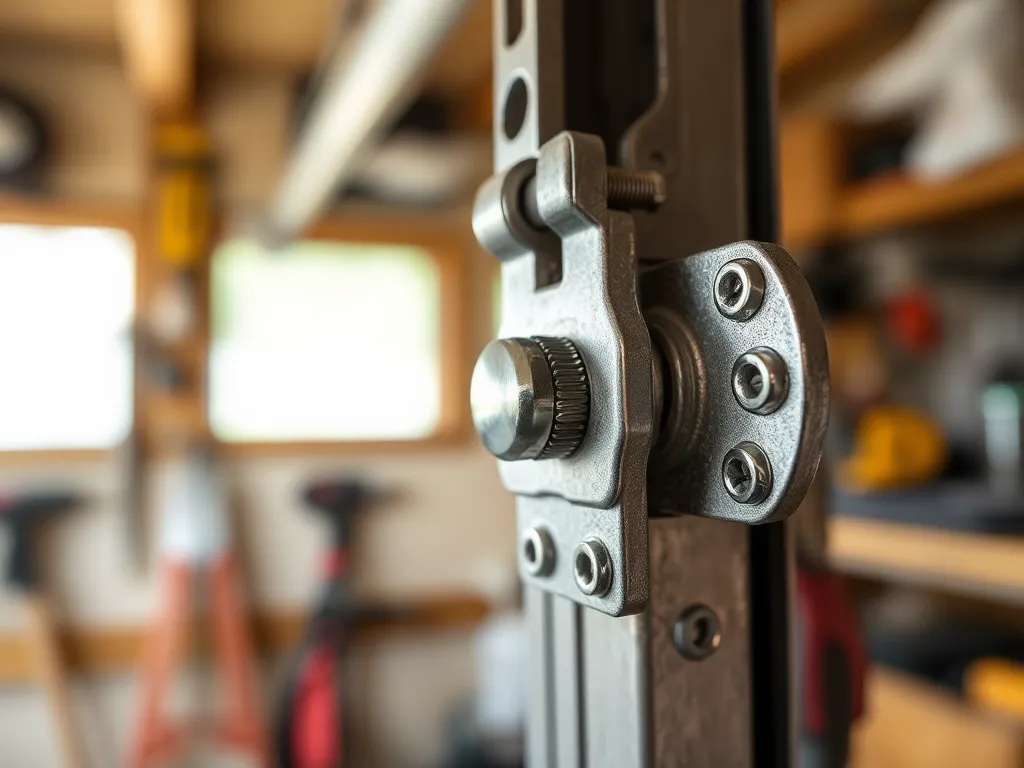Essential Tips for Effective Lubrication of Garage Door Hinges

Essential Guide to Garage Door Maintenance
Garage Door Maintenance is crucial for ensuring the longevity and functionality of your garage door system. Regular upkeep not only enhances performance but also prevents costly repairs in the long run. Understanding the components of your garage door and how to maintain them is key to keeping your garage door operating smoothly.
A well-maintained garage door can improve your home’s security, efficiency, and aesthetic appeal. Over time, however, wear and tear can lead to malfunctions such as noisy operation, unresponsive buttons, or even a complete breakdown. This article explores vital aspects of Garage Door Maintenance, focusing on lubrication, hinge care, and troubleshooting common issues.
By establishing a regular maintenance routine, homeowners can avoid unexpected expenses and ensure their garage door remains in optimal condition. Key practices include checking the door balance, inspecting the hardware, and keeping tracks free from debris. Furthermore, understanding the importance of lubrication can greatly extend the life of your garage door and its components.
Consistent preventive maintenance not only enhances the lifespan of your garage doors but also boosts their performance.
This comprehensive guide will provide insights into the various types of lubricants suitable for garage doors, as well as best practices for application. It will also delve into troubleshooting common problems, helping homeowners tackle issues confidently. Emphasizing both prevention and proactive maintenance, this article is designed to empower readers in their Garage Door Maintenance tasks.
Overall, Garage Door Maintenance is an investment in your home that pays off by enhancing safety, security, and convenience. Taking simple steps can significantly improve the performance and longevity of your garage door system.
Importance of Lubrication for Garage Doors
Lubrication plays a vital role in the optimal functionality of garage doors. It reduces friction between moving parts, which minimizes wear and tear. Smooth operation is not only essential for convenience but also crucial for safety, as it helps in the proper functioning of automatic safety features.
Signs that your garage door may need lubrication include squeaking or grinding noises during operation, slow movement, or if the door seems to be sticking while opening or closing. Regular checks can help identify these signs early, allowing for timely intervention.
Applying these hinge lubrication tips can significantly reduce wear and tear on your doors.
Proper lubrication can significantly extend the lifespan of garage doors by preventing rust and corrosion on metal parts. It's a simple task that can save homeowners from costly repairs and replacements in the future, making it a key component of Garage Door Maintenance.
If you're dealing with annoying noise, don't hesitate to explore this effective squeaky door fix that anyone can do at home.
Types of Lubricants for Garage Door Hinges
When it comes to lubricating garage door hinges, there are two main types of lubricants: grease and oil. Grease is thicker and provides longer-lasting protection against wear, while oil tends to penetrate deeper into the parts, offering quick relief from friction.
For garage door hinges, silicone spray is often recommended due to its ability to repel moisture and withstand temperature fluctuations. Lithium grease is another excellent choice, especially for heavy-duty applications where extended wear-resistance is necessary.
Environmentally friendly lubricants, such as plant-based oils and biodegradable greases, are also available. These alternatives provide effective lubrication while reducing the ecological impact, appealing to eco-conscious homeowners in need of quality Garage Door Maintenance solutions.
Proper Techniques for Lubricating Hinges
To properly lubricate garage door hinges, follow these steps: First, clean the hinges with a cloth to remove dirt and debris. Next, apply the lubricant directly onto the moving parts—using a small brush or spray nozzle can help ensure accurate application. Finally, move the door up and down to distribute the lubricant evenly.
Common mistakes to avoid include using too much lubricant, which can attract dust and grime, or applying the wrong type of lubricant that may damage the components. Always read product labels and follow instructions to achieve desired results.
For optimal performance, it is recommended to lubricate garage door hinges every six months. However, if you live in a humid or coastal area, more frequent applications may be necessary to counteract moisture-related issues.
Tools and Accessories for Lubrication
Essential tools for lubricating garage door hinges include a good quality lubricant (either grease or oil), a cleaning cloth, and a brush or nozzle for precision application. A ladder might also be necessary to reach higher areas of the garage door system.
Recommended accessories for effective lubrication include a lubricant-specific brush and a narrow straw attachment for oil dispensers, which allows for better targeting of small parts. Wearing gloves during application is advisable to keep hands clean and safe from chemicals.
While DIY tools are sufficient for home maintenance, professional tools can provide better results in some cases. Those equipped to handle more complex garage door systems may consider professional-grade lubricants and tools for more thorough care during Garage Door Maintenance.
Troubleshooting Garage Door Hinge Issues
Unlubricated hinges can lead to several common problems such as squeaky noises, jerky movements, or door misalignment. These issues not only hinder the performance of the garage door but can also lead to safety hazards if left unchecked.
To identify hinge-related issues, pay attention to any irregular sounds, look for visible wear on the hinges, and check if the door opens and closes smoothly. Regular observation is key to catching problems early before they escalate.
Solutions for sticky or squeaky garage door hinges typically involve thorough cleaning and lubrication. Utilizing the appropriate lubricant and following proper application techniques can resolve most issues. However, persistent problems may require professional inspection or replacement of parts.
